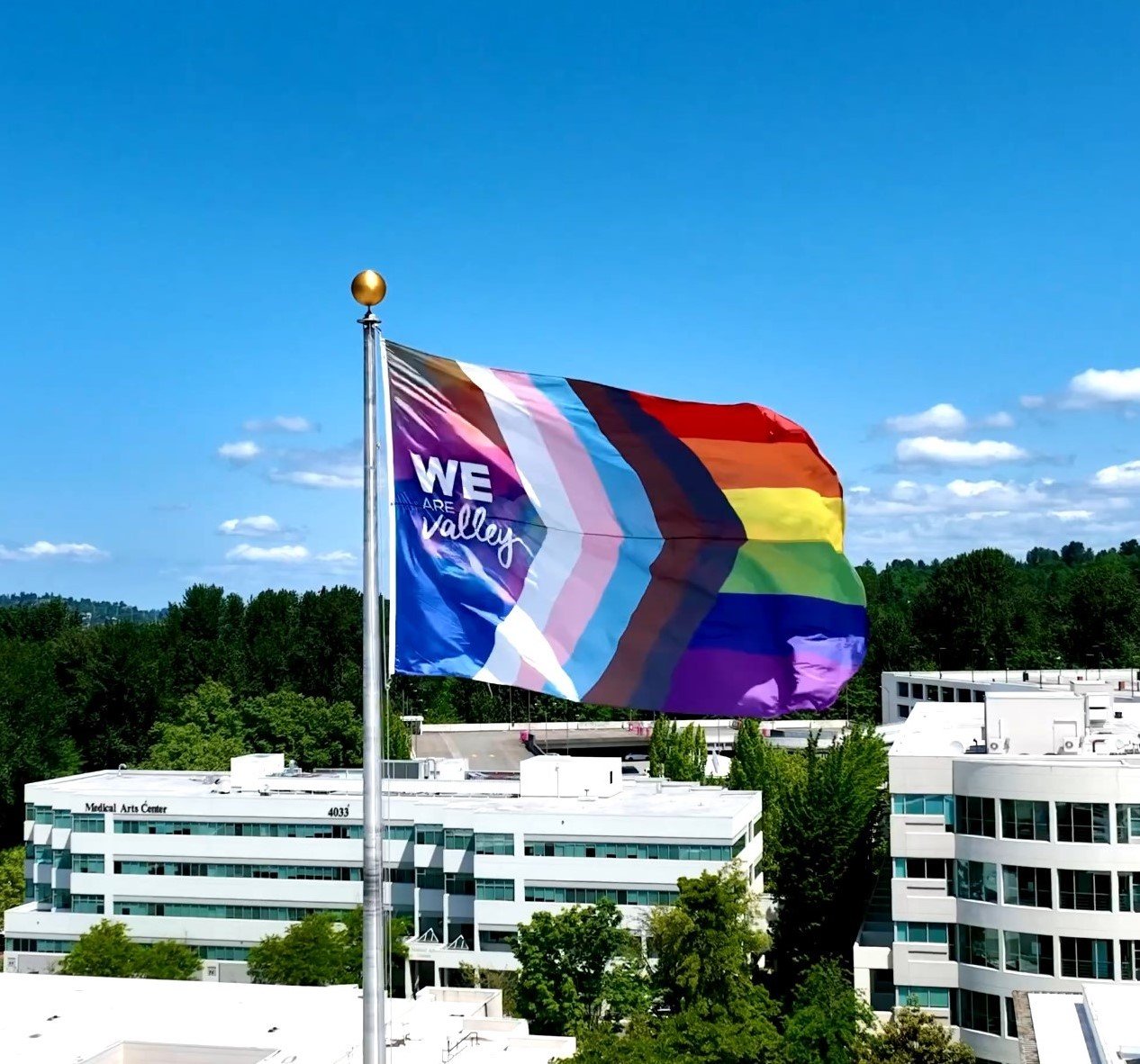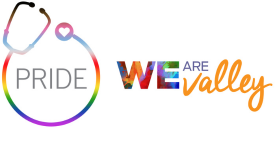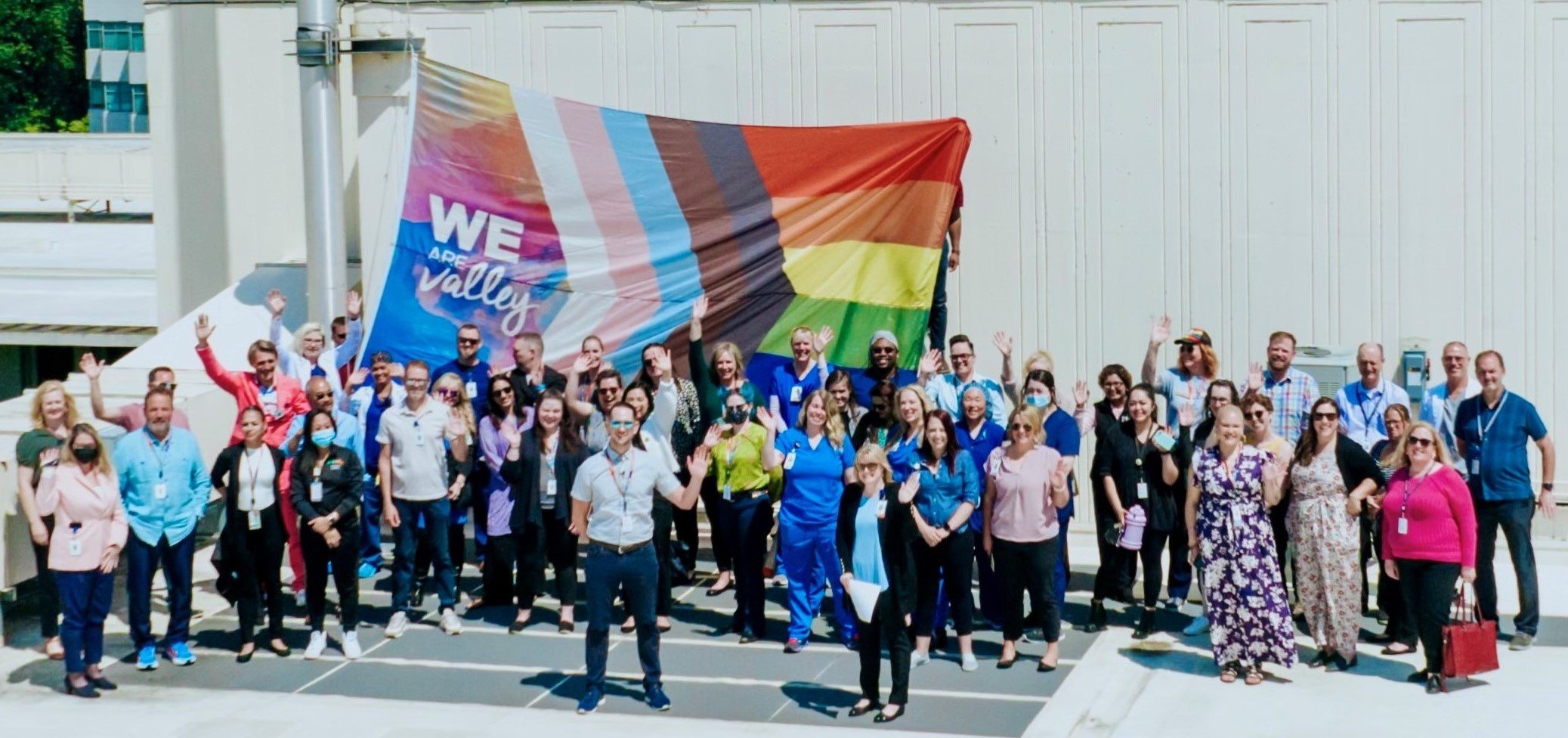UW Medicine’s contracts with Aetna for Medicare Advantage and Commercial services expire on May 31, 2025, unless renewed. We have not been able to reach a fair agreement with Aetna that is financially feasible. If an agreement cannot be reached, we will be out of network with Aetna, effective June 1, 2025. Learn more.
LGBTQIA+ Care & Services
Healthcare & Wellness Services for All
 Valley Medical Center and its Clinic
Valley Medical Center and its Clinic
Network is committed to empowering
all patients, including those of various gender
identities and sexual orientations, individuals identifying as
lesbian, gay, bisexual, transgender, queer/questioning, intersex, and asexual / aromantic / agender (LGBTQIA+) to live the healthiest lives possible. Our caregiving team
provides responsive, compassionate and respectful care in a welcoming environment
View bios of providers who are allies to the LGBTQIA+ community and/or offer LGBTQIA+ specific services.
Equitable, Inclusive Healthcare
To provide the highest quality care, Valley providers are committed to offering health services to patients on an equitable basis, regardless of sexual orientation, gender identity, marital status and other non-medically relevant factors.
Valley’s caregivers actively demonstrate their support for the health and wellness of people across the many communities we serve. Within their online profiles, some Valley providers indicate an interest in serving the needs and concerns of members of the LGBTQIA+ community. Look for providers who prescribe:
- Pre-exposure prophylaxis (PrEP)
- Adult hormone therapy
- HIV treatment

Our Services Include:
- Primary care and preventive screenings for all genders
- Confidential sexual and reproductive services
- Sexual health screening and treatment
- Help to stop smoking
- Behavioral health assessments, counseling and psychiatry
- Geriatric care
- Specialty care
- Insurance counseling and payment plans
- Interpreter services (available 24/7)

What You Can Expect During Your Primary Care Visit
- Your provider will ask about your general wellbeing, your health concerns, relationships, sexual activities, needs for preventive care such as vaccinations, the need for help to stop smoking or treat substance use issues and symptoms of depression and anxiety.
- You can ask your provider about any other medical, psychological or social issues that concern you.
- You can designate a health care proxy, including a same-sex partner.
- Your services will be delivered with complete confidentiality.
Respecting Visitation and Healthcare Decision-making Rights
Valley caregivers respect the visitation and healthcare decision-making rights of all patients and their partners, children, and any others they may define as family.
Striving to Improve Inclusive Care
Valley is committed to fully inclusive healthcare and wellness services as reflected in written forms, policies and procedures, appropriate training for all clinical and administrative staff. If you see or experience something uncomfortable or something that needs improvement at Valley Medical Center or one of our clinics, please let us know by contacting us here.

Learning More About Who Our Patients Are Helps Valley Provide Better Care
Starting in 2023, regulatory agencies required hospitals to collect more information about Sexual Orientation and Gender Identity (SOGI); Race, Ethnicity and Language (REaL); and disability status when admitting patients to the hospital or visiting any primary or specialty care clinics. Collecting this information lets us better understand the needs of our community members, allowing us to better care for our community like family. This information is part of a patient's medical record and answering the questions is voluntary.
- Read the FAQs about how this information is used.
- See the glossary of sexual orientation and gender identity terms used at Valley.
- Learn how sharing your sexual orientation and gender identity with your provider supports personalized, preventive healthcare.
Valley's Patient & Family Advisory Council is actively recruiting and accepting patients and family members to serve on the PFAC, a committee dedicated to improving Valley's patient experience. Interested in more information about serving on this council? Please apply here.
A Recognized Leader in Healthcare Equality
Valley Medical Center was the first entity in the UW Medicine system to be acknowledged as an LGBT Leader in Healthcare Equality by the Human Rights Campaign Foundation in 2012 and continues to earn this annual recognition.

LGBTQIA+ Health: Part 1
Dara Jolly, MD, obstetrician & gynecologist and faculty member of the physician residency program at Valley Family Medicine addresses potential health issues important for LGBTQIA+ patients; preventive health guidelines for those who identify as lesbian, bi, or assigned female at birth (AFAB); connecting with providers with expertise in LGBTQIA+ healthcare; healthcare recommendations for those transitioning female-to-male (pre-op); and the practices Valley employs to offer a supportive environment for LGBTQIA+ patients.
LGBTQIA+ Health: Part 2
Dan Brelsford, MD, and Mickey Kander, PA-C, address common health issues for patients in the LGBTQIA+ community, particularly for gay and bi men. Topics include STI testing, HIV prevention, and mental health. They also discuss the policies and practices Valley has in place to support LGBTQIA+ patients.
Looking for community and online resources for social and health-related support for LGBTQIA+ folks? Use this helpful resource list


